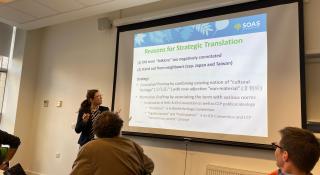
Breadcrumbs navigation
The best books on feminist teaching and learning
This article was originally published by Shepherd, a book discovery website where authors and experts share their favourite books. BISA has a partnership with Shepherd to showcase our members' books and this time it's the turn of Aiko Holvikivi Look out for further articles by BISA members in the coming weeks. Try their bookshelf on international relations or politics to browse a wide range of recommended books.
Why am I passionate about this?
After a brief career as a ‘gender expert’ in the international cooperation sphere, I embarked on a PhD to study gender training. My late father reveled in reminding me that being a teacher had been my life’s ambition since I was five years old. It’s true: a fascination with how we teach and learn has been the red thread running through my professional and personal life. I’ve since become a professional academic, and my book on gender training came out last year. Researching it, I read many excellent books on pedagogy from feminist and postcolonial perspectives. Here are the top five books that changed how I think about these questions.
I wrote...
Fixing Gender
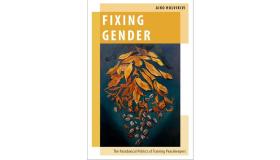
What is my book about?
“Gender training" has gained widespread popularity among different professions in the last few decades; it has even become a requirement for soldiers and police officers deploying as peacekeepers. But what happens when the concept of gender, which was developed through feminist activism and scholarship, is taken up by martial institutions shaped by hegemonic masculinity?
This is the puzzle that my recent book addresses. For it, I spent extended periods of time observing peacekeeper training, trying to figure out what gender comes to mean in this training and with what effects. I also read a great deal of work in the field of feminist pedagogy, and here I share the best books I found on how feminists have thought about teaching and learning.
The books I picked & why
Teaching to Transgress: Education as the Practice of Freedom
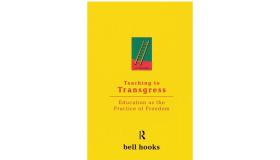
Why did I love this book?
When I first read this book, I had just started teaching gender in university classrooms and was studying gender training for my PhD research. This book crystallized for me what I found so fascinating and important about teaching and learning as a feminist.
In this book, the late great bell hooks weaves together personal experience with academic engagement in a way that is accessible and engaging. In dialogue with the iconic Brazilian education theorist Paolo Freire, she lays out her vision for education as a practice of freedom, as opposed to education that reinforces systems of domination. I assign parts of this book in my courses every year and recommend it to everyone interested in thinking about how education can be a liberatory practice.
Feeling Power
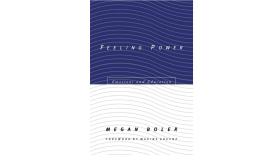
Why did I love this book?
Resistance by students is common in gender training, and I was grappling with trying to understand under what conditions we accept knowledge as true, and what logic we use to disavow other forms of knowledge.
This book was a revelation for me when I was working through these questions. Against the preconception that education is about a technical knowledge transfer, Megan Boler insists that we understand emotion as central to teaching and learning. She reveals that emotions are central to how we know and what we know. In particular, her notion of a ’pedagogy of discomfort’ helped me think about what an ethical engagement with resistance and difficult questions of complicity might look like.
Decolonization and Feminisms in Global Teaching and Learning
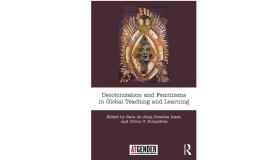
Why did I love this book?
There are many different strands of feminism, but the ones I find most compelling show that gender is always inflected by other axes of difference. In fact, it is impossible to make sense of some of the dynamics of peacekeeper gender training without attending to histories of colonisation.
In this vein, this book brings a crucial decolonial perspective to questions of feminist pedagogy. It shows how and why liberation from patriarchy must be linked to liberation from coloniality and racism. In addition to its important insights into higher education and teaching and learning more broadly, I love the range of materials that Sara de Jong, Rosalba Icaza, and Olivia Rutazibwa have curated for this book. It features poetry, manifestos, and other creative forms of writing alongside more traditional academic essays.
The Politics of Feminist Knowledge Transfer
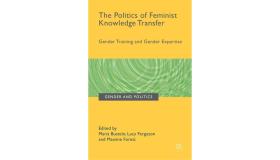
Why did I love this book?
I had been designing and delivering gender training for many years and was researching it for my Phd when this book came out. Its publication was akin to finding an oasis in a desert. Even though gender training has become, as the editors Maria Bustelo, Lucy Ferguson, and Maxime Forest point out in their introduction to this collection of essays, the most widely used tool for gender mainstreaming worldwide, remarkably little has been written about it.
This smart and expertly curated book is one of the first to fill this gap. Featuring writing by both professionals involved in gender training and academics researching it, it shows that the concerns of feminist pedagogy reach beyond formal education, into spheres of public policy through adult learning and training practices.
Touching Feeling
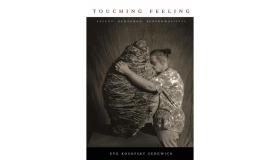
Why did I love this book?
Eve Kosofsky Sedgwick was one of those rare academic authors who comes across as incredibly likable in her writing. I never met her, but her text just exudes warmth, humour, and relatability, in addition to (or perhaps even in spite of) being erudite and insightful.
In this collection of essays, she attends to questions of pedagogy—how we know and learn things—but examines sites of pedagogy beyond formal education or training. She reveals to the reader that the cat who brings her owner small prey is actually trying to teach the former how to hunt, and shares how studying Buddhism rearranged for her the landscape of how to think about death.
I love this book dearly because it made me think about questions of pedagogy in a completely novel theoretical register, and because it made me both laugh and cry in doing so.
Photo by Joyce Hankins on Unsplash

